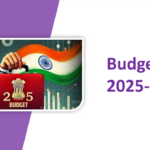Navigating the complex world of personal finance can be difficult, especially if you are trying to make decisions that will impact your financial future. A financial advisor may offer valuable guidance on anything from debt management to stock market investing to retirement planning. However, not all financial counselors are the same. It takes great thought and investigation to find the best one. In this complete guide, we’ll lead you through the process of finding the proper financial advisor, whether you’re looking for a certified financial advisor, a certified financial planner in India, or a financial consultant.
Why Do You Need a Financial Advisor?
An individual handles debt requirements while directing investments and managing sources of income and long-term target objectives. Isn’t it overwhelming? A financial advisor functions like a skilled magician to maintain order throughout this situation. Financial advisors lead your investment decisions toward wealth expansion and guide you through retirement savings to obtain stress-free coffee on sunlit outdoor seating and control where your assets go after death. Having a financial advisor serves as a GPS to help drive you toward tax-free security and complete peace in your lifetime. Hiring a professional yields better management results than independent attempts.
Here are some common reasons:
- Complex Financial Situations
- Investment Management
Types of Financial Advisors
Think of financial advisors as a team of specialists, each with their own superpower to tackle your money challenges. Here’s the lineup:
- Certified Financial Planner (CFP): The all-rounder. They’ve faced tough exams and training to master retirement, taxes, estate planning, and investments. They’re your go-to for a full financial game plan.
- Certified Financial Advisor (CFA): The investment guru. They’ve passed the ultra-competitive Chartered Financial Analyst exam and excel in portfolio management and financial analysis. Perfect for growing your wealth strategically.
- Financial Consultant: The jack-of-all-trades. They offer advice on a range of financial topics, but their expertise can vary. Always check their credentials to ensure they’re the real deal.
- Registered Investment Advisor (RIA): The fiduciary hero. Legally bound to put your interests first, they’re registered with the Securities and Exchange Commission (SEC) or state securities regulators and focus on giving unbiased advice to grow and protect your wealth.
Steps to Find the Right Financial Advisor
1. Identify Your Financial Goal
Sitting down with a pen and paper, it’s time to think about the future. Is the goal to retire early on a beach, buy a dream home, or finally break free from debt? These aspirations shape the kind of help needed. For retirement dreams, a Certified Financial Planner (CFP) can map out the journey. If growing wealth through smart investments is the focus, a Chartered Financial Analyst (CFA) might be the ideal guide. Knowing the destination makes finding the right financial advisor a lot easier, turning those dreams into achievable plans.
2. Determine the Services You Need
Choosing a financial advisor is like hiring a guide for a specific journey. Imagine needing directions—some guides excel at planning for retirement, while others specialize in navigating investments or minimizing taxes. Before picking one, it’s essential to map out exactly what’s needed. If the goal is estate planning, partnering with an experienced professional assures a smooth way forward. Just as a visitor would not hire a mountain guide for a sailing trip, selecting the correct financial advisor entails matching their knowledge to the adventure ahead.
3. Verify certifications and credentials.
The credentials and professional certifications serve as visible proof of advisors’ expertise level and professional competence. You should seek advisors who have received reputable certifications, including Certified Financial Planner (CFP), Chartered Financial Analyst (CFA), and Registered Investment Advisor (RIA). These credentials requiring extensive education alongside testing and experience demonstrate that the advisor fulfills the necessary professional standards.
4. Evaluate Experience and Track Record
Expertise in financial advising changes according to how many years the professional has worked in the field. Seek an advisor who demonstrates multiple years of industry experience coupled with a history of achievements. Check online review platforms and ask for references to learn about the advisor’s professional standing. Reviewing the disciplinary history of professionals with regulatory bodies, including the Securities and Exchange Board of India (SEBI), is possible to identify complaints or disciplinary actions against the advisor.
5. Understand the Fee Structure
Financial advisors can be compensated in different ways, including fees, commissions, or a combination of both. It’s important to understand how your advisor will be compensated and how that might impact the advice they give. Fee-only advisors are generally considered more objective because they don’t earn commissions on the products they recommend. However, fee-based advisors may offer a wider range of services. Make sure you understand the fee structure and ask for a detailed breakdown of all costs.
6. Ask About Fiduciary Duty
Not all financial advisors are fiduciaries, so it’s important to ask whether the advisor you’re considering is a fiduciary. Fiduciary advisors are required to put your interests ahead of their own, which can provide an extra layer of protection and peace of mind.
7. Start with a Trial Period.
Data verification will not guarantee perfect compatibility, which is why you should begin with short-term consulting before joining the advisor on long-term financial guidance. During your first meeting, most advisors will provide you with free consultation time to demonstrate how they function as well as determine their suitability for your financial needs. Moving forward to a more official partnership starts after your satisfaction with the initial assessment period.
Conclusion
The right financial advisor needs to both make you feel relaxed during work sessions and deliver messages in an understandable manner. Listen to how the advisor both hears your problems and simplifies complicated financial information during your first appointment. Both your financial goals and your achievements matter to your advisor, who shows complete understanding of your requirements. All financial advisors apply distinct investment concepts, so you must look for an advisor whose principles match your own financial approach.













